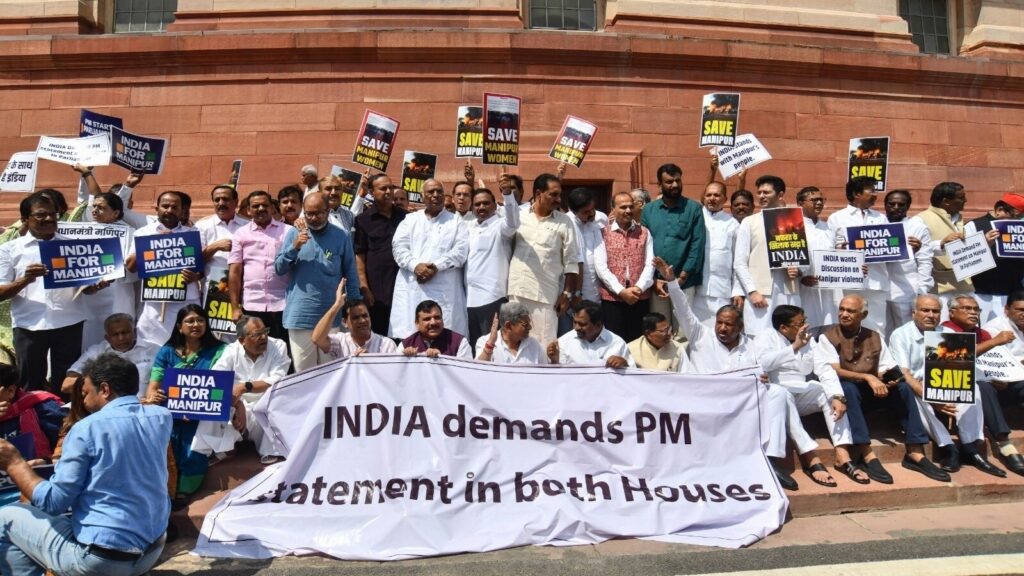When 26 Opposition parties came together to form the Indian National Developmental Inclusive Alliance (INDIA) in Bengaluru, they faced an immediate (parliamentary coordination), a medium-term (seat-sharing arrangements) and a long-term (the 2024 elections) challenge. This week, as Parliament’s monsoon session opened to a storm of disruptions over a barbaric sexual assault in Manipur, part of the ethnic violence roiling the state, the short-term challenge presented itself. On Wednesday, Lok Sabha Speaker Om Birla accepted the Opposition’s notice for a no-confidence motion. Mr Birla said he will discuss the matter with all parties, and according to the rules, before deciding on the schedule for the discussion. Indications are that the debate will likely take place next week. Another aspect of this challenge will come in the form of the Delhi services bill, which aims to replace an ordinance that accords power to the Union government to control the bureaucracy in the Capital.
For a grouping that struggled to put together a united front in Parliament till as late as the budget session – reports often spoke about disagreements over the role of the Congress, and its differences with the Aam Aadmi Party or the Trinamool Congress – keeping its flock together in the face of these twin challenges is an important task, and an impressive feat should it manage to do so. Of course, numerically, the government isn’t under any threat from the no-confidence motion, but the key will be in seeing how far INDIA is able to push the government on Manipur during the debate on the motion (in the past such as in 2018, the Opposition has used no-confidence motions to make a point during the debate, even if it suffered a stinging defeat during the actual voting). A more important marker of Opposition unity will come during the passage of the Delhi services bill in the Upper House, where the numbers are much closer, but still in favour of the government. The ruling National Democratic Alliance (NDA) is short of a majority on its own and has traditionally leaned on friendly parties such as the Biju Janata Dal or the YSR Congress on key bills. It will now be up to INDIA to convince other parties to come on board and give the government a tough fight.
A strong showing during the monsoon session is no guarantee that INDIA will be able to meet the thornier challenges of seat sharing and electoral performance. But it’s a start. The 2024 polls are forcing significant alignments in the political space, and these look set to stay, at least till the last vote is cast.
Experience unrestricted digital access with HT Premium
Explore amazing offers on HT + Economist


